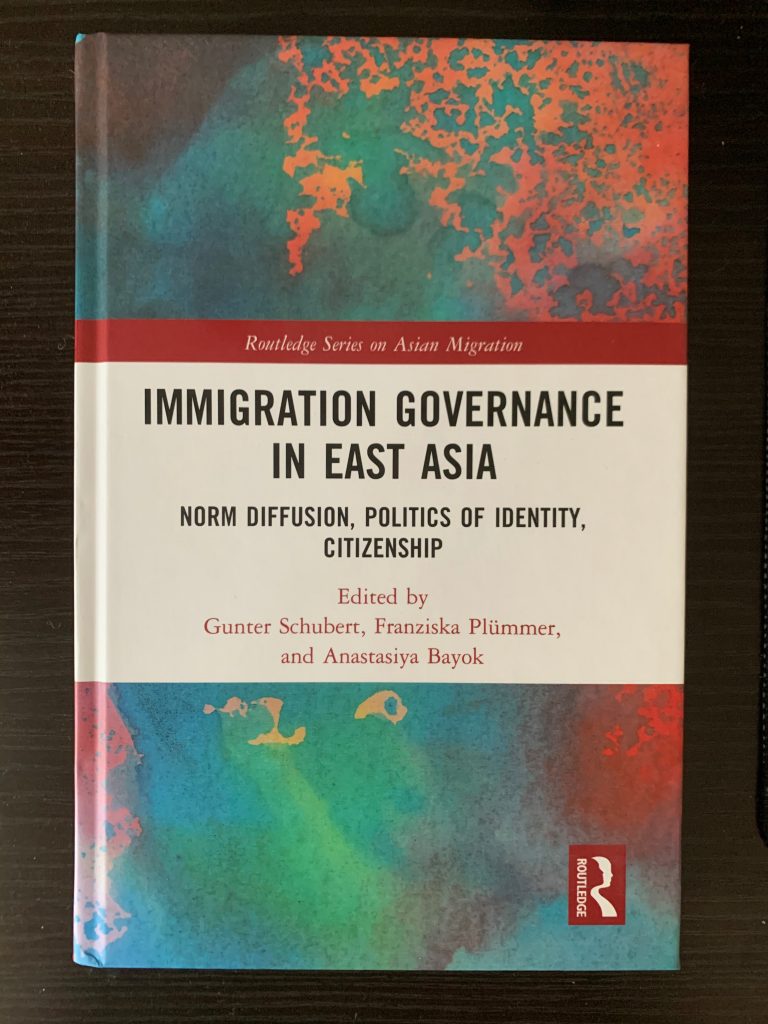Elena Meyer-Clement and Xiang Wang published a new chapter titled “Global city competition and new hierarchies of urban citizenship in China’s migration regime” in the book Immigration Governance in East Asia: Norm Diffusion, Politics of Identity, Citizenship. The book is edited by Gunter Schubert, Franziska Plümmer and Anastasiya Bayok. It analyzes immigration policies in contemporary East Asia and it is included in the Routledge Series on Asian Migration.
The chapter discusses China’s evolving approach to governing migration in its cities under the conditions of national and global city competition. It investigates how China’s central and local governments steer who becomes an urban citizen and whether there are signs of an integrated approach of governing immigration and internal migration. The analysis shows that on the national level, there is high alignment among recent immigration policies with the rationales of internal migration policies. There is a two-pronged approach in both policy areas: attracting skilled and educated foreigners and migrants on the one hand, and strengthening the governance of unwanted individuals on the other. The chapter presents two cases studies of Shanghai and Yiwu. The analysis shows that the existing hierarchical order of exclusion and inclusion in China’s local citizenship regimes has been reinforced by the diffusion of global norms of urban restructuring and city competition. Meanwhile, the differences between the two cases reveal that China’s central–local relations and the administrative rank of Chinese cities are important factors for understanding how global norms of capital restructuring and city rescaling affect China’s urban migration regimes.

